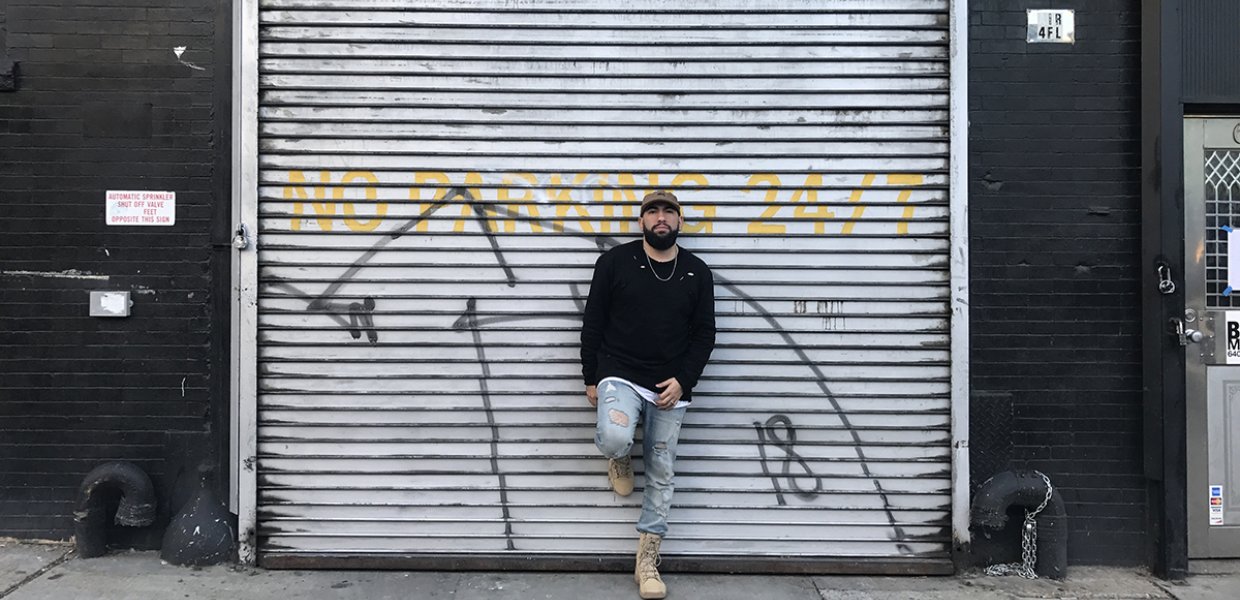Daniel Alejandro Leon-Davis emigrated from Venezuela to Florida with his mother when he was 6 years old. Coming to the United States at such a young age, he says he grew up “feeling as American as everybody else.”
“Being an immigrant in Miami, or frankly even Orlando, where I graduated from high school, didn’t feel like being the ‘other,’” he said. “It felt like the norm. So, I didn’t grow up feeling othered at all.”
All of that changed in high school, when he learned a fact that his family had long concealed from him. “I found out in my senior year that I was undocumented,” Leon-Davis said. “That’s the moment that took me into politics in a way that I never expected to be drawn into it.”
Having come out as gay as a teen, he had another “coming out” in college, when he publicly revealed that he was undocumented. Ever since then, he has hurled himself into to political advocacy, communication, and community-building, including as co-founder of the social-justice-focused Soze Agency.
Now based in Atlanta, where he lives with his husband Dom, Leon-Davis has moved on from the agency and has begun working on a new venture that will focus on the power of art and design to move public opinion and effect change.
For the 2020–21 academic year, he’ll be pursuing these new goals as a member of the new cohort of Civic Media Fellows at the Annenberg Innovation Lab. “One of the things I'm really trying to push is the fact that fashion actually is a form of media,” he said. “It can be very effective in a social capacity. This fellowship lends itself to the work I'm doing now to really push that conversation.”
Leon-Davis — who, like the rest of the 2021 Civic Media Fellows, will be serving his fellowship remotely — spoke with USC Annenberg about his journey of activism and art.
In addition to the rights of the undocumented, what other issues did you champion after you graduated from college, and what was your vehicle for engaging with those movements?
When I first started my activism, it very much felt like cookie-cutter organizing. After I graduated, I ended up moving to New York, getting an internship, eventually becoming the chief of staff for film director Michael Skolnik, who was someone known for leveraging his connections in the entertainment industry for his activism. And that’s where I learned that you can’t actually implement policy until you move the culture. So, for me, over the years, my activism has taken the shape of creating experiences to tell the stories of people, often featuring some of Hollywood's top talent — and always centered around social issues. Everything from immigration to criminal justice reform to gun-violence prevention.
Why do you think art has that power?
There’s something so uniquely human about storytelling in the sense that when you center storytelling, when you center the narratives of those who are most impacted by whatever issue it is that you're talking about, you bring in their humanity. People respond to that, and you’re able to get people to see things differently.
You were with SOZE until 2019; now you’ve started an independent design studio called Hard Reset Studios. How did this new venture come about?
At the Soze Agency, I had the pleasure of being the lead and creative director for a campaign called Change Fashion, which was about the impact that the fashion industry has on climate change and on our environment as a whole. I've always been an environmentalist, but I think this project gave me a chance to delve into it in ways I hadn't thought about, even in regard to my own consumption. So, with Hard Reset Studios, I’m working at the intersection of design and social impact.
Is that related to what you’re working on as part of your Civic Media Fellowship now?
Yes, I’ll really be exploring what it looks like to build a streetwear brand that is thinking about social impact, not just in regards to the merchandise you're creating and what it says on it, but also where the shirt is made, what the shirt is made of, who is making the shirt, all of those pieces. I’m really trying to delve into all of those aspects that make for a truly socially conscious environmental streetwear brand.
